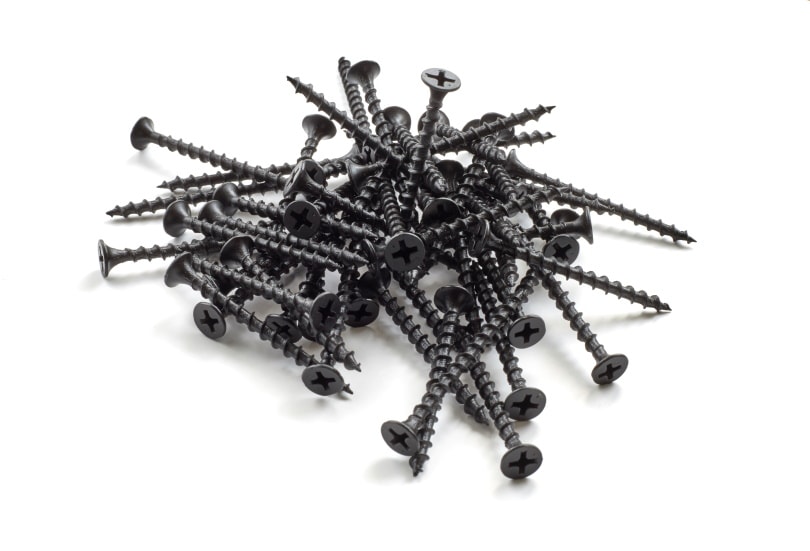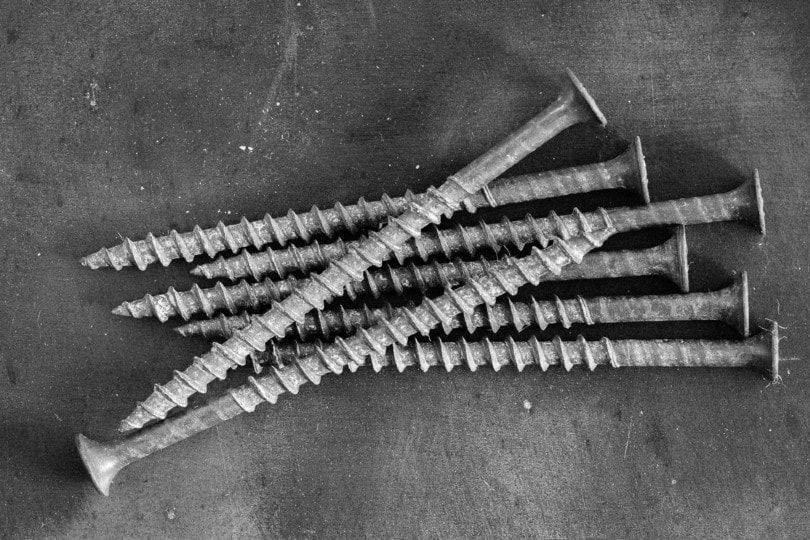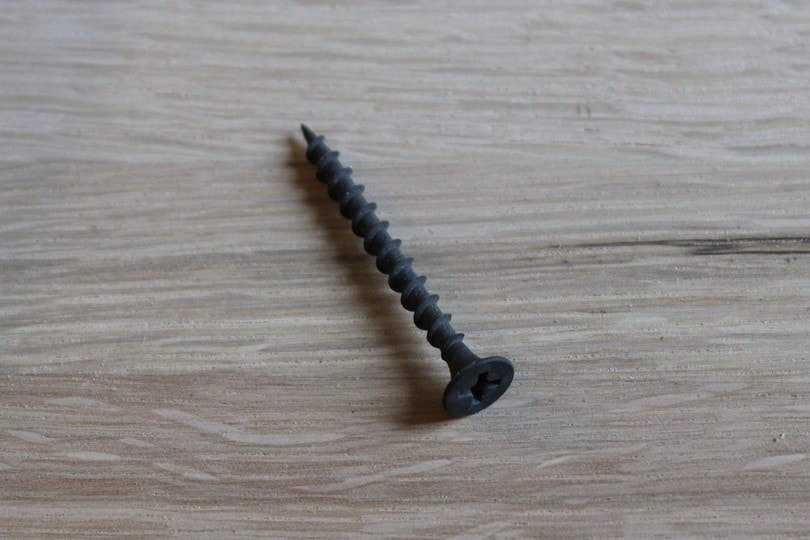Can You Use Drywall Screws in Wood? Pros & Cons
-
Pete Ortiz
- Last updated:

Drywall screws are a specialized type of self-tapping screws used primarily as a fastener that secures the drywall to wood or metal framing. It is used instead of traditional screws since it helps reduce the dimpling on the drywall that a standard screw would create. These screws are known for being thin and somewhat brittle, which can sometimes be an advantage, but more often comes as a drawback that makes them snap under a lot of pressure. While drywall screws have their primary purpose, there is an ongoing debate about whether they can be of good use for screwing wood and woodworking in general. Drywall screws can screw on wood and do a decent job, although there may be better options to consider.
Make sure to read the rest of this article to learn more about drywall screws, so you can decide whether you’ll use them in your future woodworking projects or go for a different solution.
Drywall Screws vs. Wood Screws
When it comes to which screw is better and more functional on wood, you can choose between various types. The main difference between these two screws is the materials used—a wood screw is made of stainless steel, zinc-plated steel, and silicon bronze, while a drywall screw is made of case-hardened steel.
Since drywall screws are made of hardened steel, they are also brittle, especially if screwed into hardwood. Wood screws are thicker and made with softer metals, therefore, they are much more resistant to breaking or snapping.

Advantages of Using Drywall Screws on Wood
There are some advantages of using a drywall screw on wood, although they are mostly subject to individual attitudes and opinions. While some people tend to use drywall screws on wood frequently, others would advise avoiding them and have had a bad experience with them. Some advantages include:
- The flat head of drywall screws is less likely to sink into the wood than other types of screws.
- Since they are so thin, the wood will not split as often.
- Traditional screws may leave tiny holes or get loose over time.
Disadvantages of Using Drywall Screws on Wood
Even though the use of drywall screws for wood has many beneficial factors, there are some crucial disadvantages you have to be aware of:
- The treads on drywall screws are not coarse enough and cannot get a firm grip on the wood.
- Since drywall screws are thin and brittle, they can easily snap if too much pressure or tightness is added.
- The thread covers the entire body of a drywall screw, so when you connect two wooden pieces, it can force the pieces apart.
- If a drywall screw breaks in your hardwood, removing the broken-off shank out of the wood can be extremely challenging without damaging it.

Are Drywall Screws Suitable for Wood?
While drywall screws can be used on wood and can do a decent job, there are better solutions on the market. When woodworking, it is recommended to use wood screws to get the best results. Drywall screws are made to secure drywall to wood or metal, and they do an excellent job at that, but when it comes to woodworking, they have a couple of disadvantages that don’t make them an ideal solution.
Although drywall screws are not the best solution for wood, they have proven to work well in some aspects of woodworking. They are great when it comes to the head of the screw not sinking into the wood, and since they are much thinner than other types of screws, they are less likely to split the wood.
Final Thoughts
When choosing an ideal screw for woodworking and screwing wood, no solution is better than the other. Each screw has its advantages and drawbacks, and it goes the same for drywall screws. Drywall screws are an excellent solution for working with soft woods since they are great at ensuring the wood doesn’t split. Nevertheless, a drywall screw may not be the best solution when working with hardwood since it will most likely break from the pressure and hardness.
See also:
Featured Image Credit: Kinred, Shutterstock
Contents


